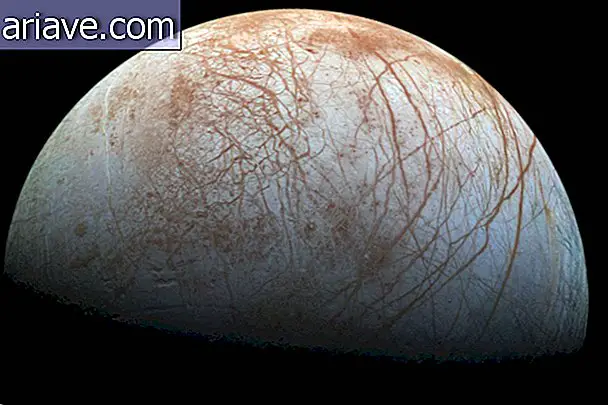Astronomers detect mysterious radio signal from space
As you know, many scientists are committed to finding - once and for all - alien life forms. And isn't it that a team of astronomers apparently detected a radio signal from space? Unfortunately, it seems that this is not a radio broadcast sent by any inhabitant of another planet. But even so, the discovery of the signal is no longer interesting.
According to a report released by Canada's McGill University, this pulse - known as the "Lorimer Burst, " a transient celestial pulse lasting no more than a few milliseconds - was recorded using the Arecibo radio telescope, the largest fixed radio telescope. of the world located in Puerto Rico.
Definitely cosmic

According to the publication, other similar radio signals had been detected previously, once by the Parkes Observatory radio telescope in Australia, and once by Arecibo's own radio telescope. However, there were doubts that the pulses really came from space or if they had been generated by some source here on Earth.
However, this time astronomers claim that there is no doubt that the signal is of cosmic origin. As they explained, although what caused the pulse remains a mystery, it shows signs of coming from somewhere beyond the Milky Way.
Researchers have some guesses as to what might have caused the pulse - such as explosions caused by magnetars, fusions of neutron stars, or crumbling black holes - but it is all speculation. However, as they explained, with the confirmation that the signal was not generated on our planet, astronomers can claim that it is an astrophysical phenomenon that must be studied and classified.
More Studies

Pulses such as this one detected in Arecibo, due to their very short duration, are very difficult to record, although they occur about 10, 000 times a day. The current signal was discovered during a survey in which astronomers used the radio telescope to find pulsars and other rare objects to better understand neutron star-related physics as well as to test theories of gravitational physics.
With the discovery of the signal, astrophysicists from around the world are devoting themselves to the task of detecting more radio pulses through radio telescopes capable of observing larger portions of space in an attempt to help identify these phenomena.











